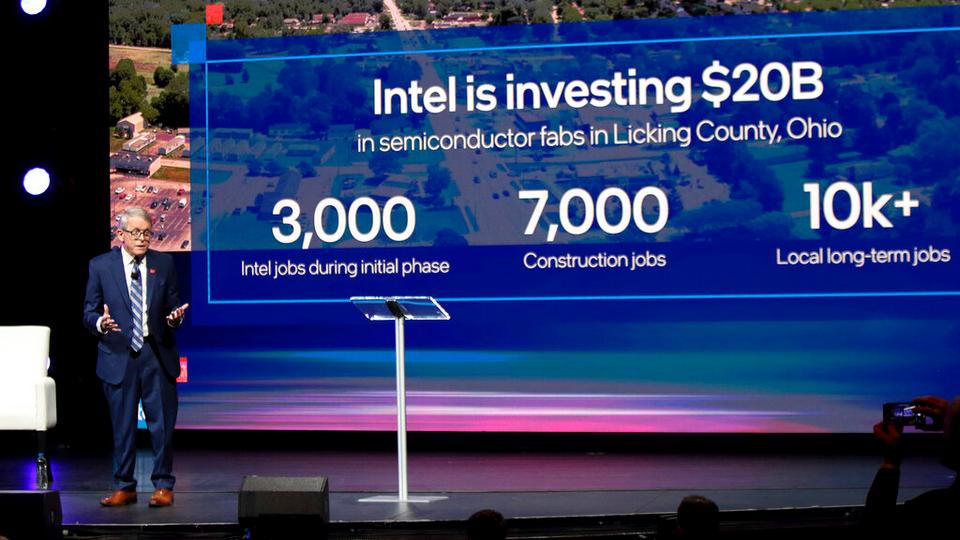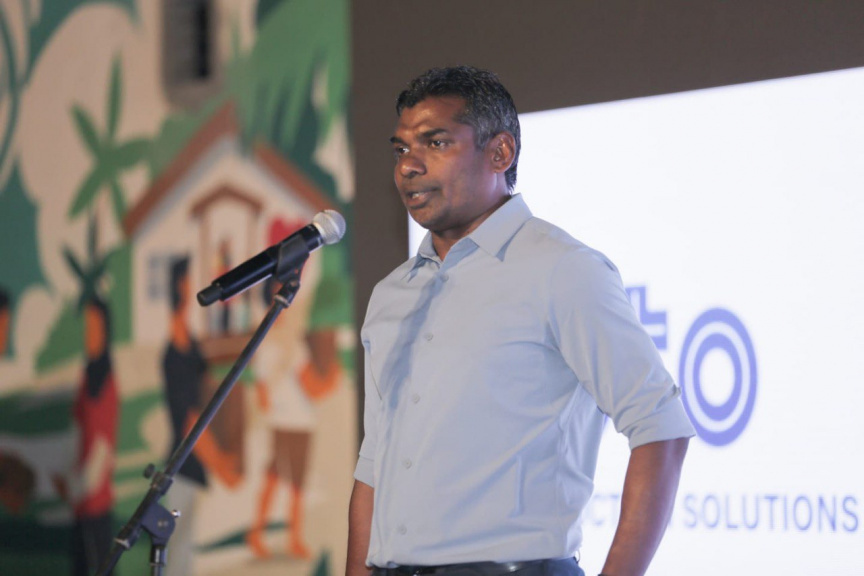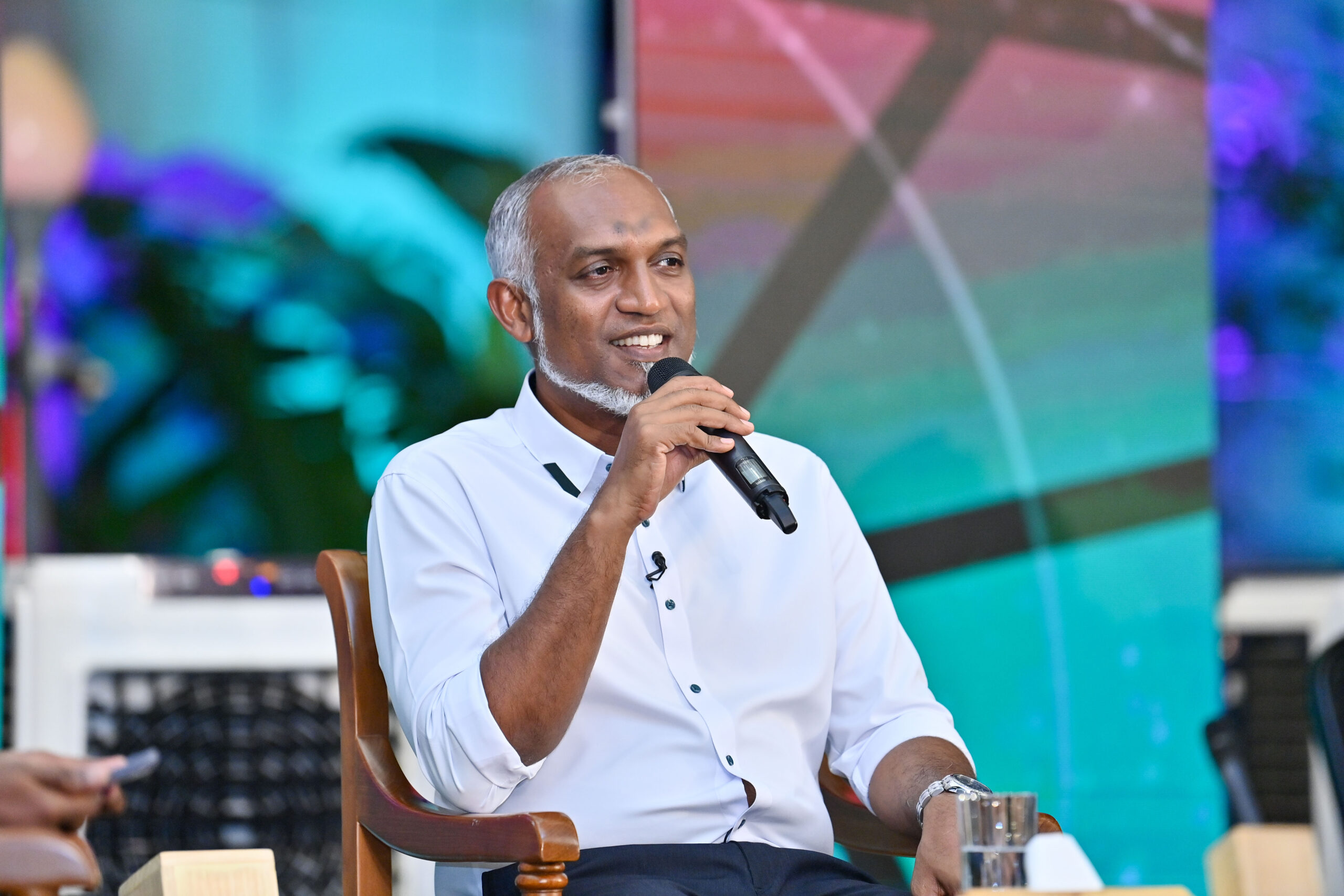Before President Dr. Mohamed Muizzu assumed office, the economic condition of the Maldives was significantly deteriorating. Experts attribute the primary reason for the depreciation of the Maldivian currency to the excessive printing of money by the previous administration.
According to statistics from the Maldives Monetary Authority (MMA), more than USD 518.04 million was printed over the last three consecutive years, marking a historic high compared to USD 388.53 million printed over 40 years.
Additionally, upon assuming office, President Muizzu inherited a heavy debt burden. The total debt amounted to over USD 7.71 billion, with a significant portion owed to companies for upcoming parliamentary elections and previously initiated projects, totaling USD 584.88 million.
Despite these challenges, President Muizzu has been proactive in rejuvenating the Maldives’ economic status. Within three months of his tenure, USD 35 million has been deposited into the sovereign development fund. The President estimates that more than USD 100 million will be deposited into the fund by the end of the year.
discontinuation of printing money has been regarded as a pivotal step towards economic progression for the Maldives
President Muizzu’s commitment to revitalizing the Maldivian economy without resorting to the printing of money is indeed a significant pledge. By discontinuing the practice of printing money, the government aims to address economic challenges while ensuring fiscal responsibility and long-term sustainability.
The decision to immediately halt the printing of money upon assuming office underscores President Muizzu’s determination to prioritize sound monetary policy. This move reflects an acknowledgment of the risks associated with excessive money printing, including inflation and currency devaluation, and signals a commitment to addressing these challenges through prudent financial management.
Furthermore, President Muizzu’s plans to boost the country’s prosperity and income by reducing reliance on loans and settling debts owed to both foreign and domestic entities demonstrate a holistic approach to economic revitalization.
attracting a vast pool of investors
The efforts of the present administration to attract a wide range of investors reflect a strategic approach to addressing the significant development needs of the Maldives. By engaging in investment forums both domestically and abroad, the government has been successful in showcasing the diverse investment opportunities available in the country.
The decision to host investment forums in countries like China and the UAE demonstrates a proactive approach to international investment promotion. These forums serve as platforms for highlighting the potential for investment in key sectors such as infrastructure, tourism, and hospitality. By creating awareness about these opportunities, the government aims to attract investors who are interested in contributing to the development of critical projects, including the establishment of bridges, domestic airports, and resorts.
Over 500 projects underway
The continuation of 527 projects, including those that faced interruptions due to non-payment to companies during the government transition, underscores the commitment of President Muizzu’s administration to ensure continuity and progress in ongoing initiatives. Despite the challenges encountered, efforts have been made to address issues such as delayed payments and optimize project expenses to keep important projects on track.
It’s notable that the current year’s budget, initially approved by the prior administration, may not have fully aligned with President Muizzu’s priorities and rules for project implementation. This misalignment may have resulted in some projects not receiving adequate budget allocations or not being included in the budget at all. However, the administration has taken steps to optimize expenses and prioritize projects that align with President Muizzu’s vision for development
Initiatives to enhance economic growth and foster sustainable growth
The International Monetary Fund (IMF) has recognized President Muizzu’s initiatives as some of the strongest implementations seen among world leaders, emphasizing their potential for substantial progression. The IMF applauded the government’s decision not to overdraw the government’s account and expressed its readiness to provide any assistance needed. This endorsement from the IMF underscores the effectiveness of President Muizzu’s economic policies and strategies.
Additionally, the Maldives National Chamber of Commerce and Industries has voiced support for the government’s initiatives, recognizing them as favorable for the Maldivian future as a growing economy. Despite challenges such as a shortage of dollars for small businesses, the Chamber remains optimistic that the government’s decisive actions will lead to economic growth and stability in the value of the dollar.
The government has projected a 5.5 percent economic growth rate for this year, indicating confidence in the trajectory of the economy under President Muizzu’s leadership. Furthermore, President Muizzu revealed a significant reduction in the country’s primary debt balance, from USD 103.61 billion last year to USD 8.68 million in the current year. This reduction in debt, achieved within just four months, demonstrates the government’s commitment to fiscal responsibility and its ability to effectively manage the country’s finances.
Overall, these developments indicate that the government’s economic rejuvenation efforts have been successful, earning the confidence of global financial institutions in the Maldives’ future economic prospects.
Source(s): PsmNews

 News6 days ago
News6 days ago
 Sports4 days ago
Sports4 days ago
 News6 days ago
News6 days ago
 News7 days ago
News7 days ago
 News4 days ago
News4 days ago
 News4 days ago
News4 days ago
 Sports4 days ago
Sports4 days ago
 World3 days ago
World3 days ago


















